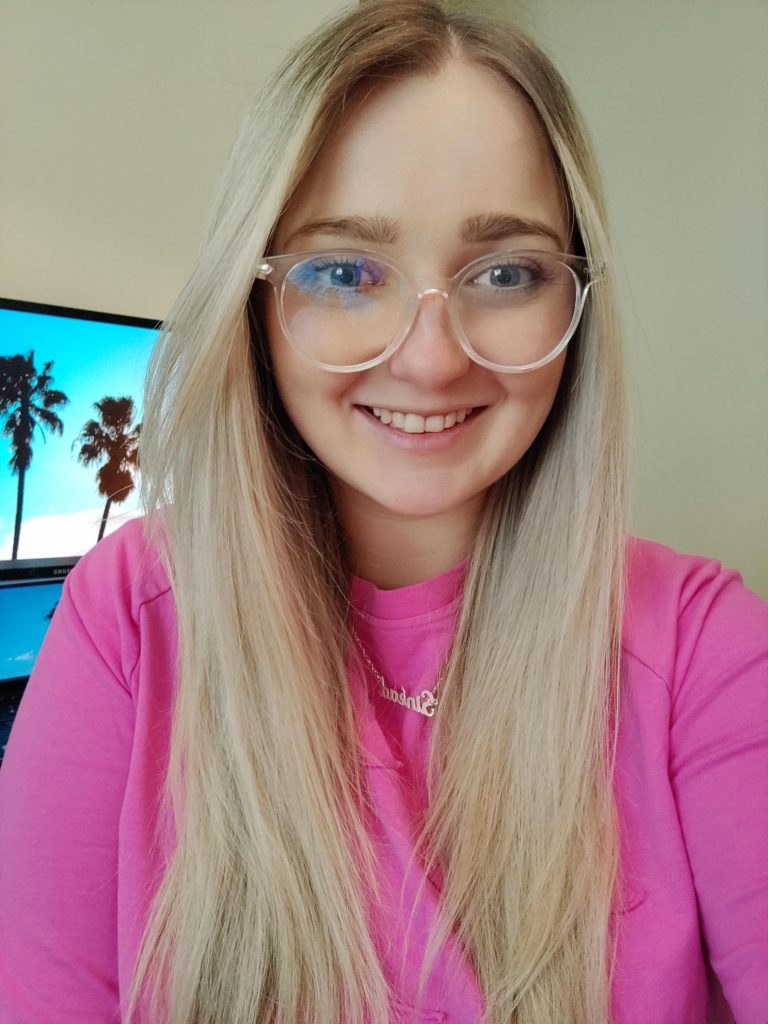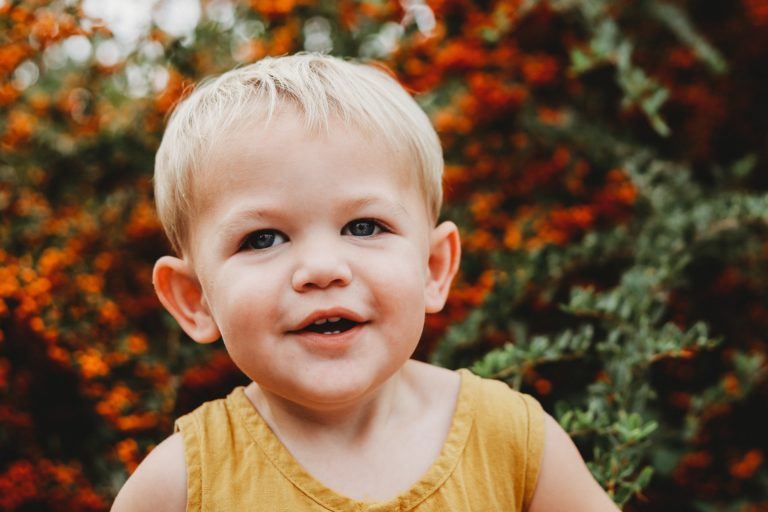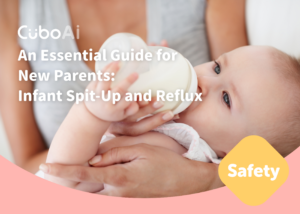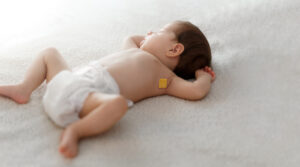There are plenty of milestones in a baby’s life that parents have to think about. Your baby is dependent on you, but they are also unique human beings that will develop in their own way and time.
Comparison is the devil that many of us fall to, and it can be easy to wonder if your baby is meeting certain timelines compared to other newborns.
Parents want their babies to be happy and healthy and can wonder whether something is wrong if their newborn isn’t reaching milestones in the time they expected.
Learning to talk is one branch of the holy trinity of newborn development. How you and your baby communicate will shape the rest of their life, and indeed, their further development. At some point, all parents will ask themselves the question: when do babies start talking?
Understanding the typical timeline can help you know if your baby is staying on track and when you should be concerned. We have created an easy to follow baby-talking timeline to give you a general guide on when babies start talking.
Read more to find the answers to your burning questions about your baby’s development.
Guide to this post:
When do babies start talking?
The most important takeaway is that all babies are different and may not reach milestones at the same time. So don’t immediately panic if you find your baby is older than other babies who can already talk. There are other things your baby may be developing that you are not even aware of.
A better question to ask is: when do babies start listening?
You might be surprised to learn that your baby is listening to you from day one. Babies can learn quickly, and the beginning of learning to talk is listening to the world around them and making sounds, or “baby talk” to try to communicate. Babies can distinguish sounds from as young as four weeks old, which helps them establish words for themselves. Crying, grimacing, and cooing are all forms of communication and are signs that your baby is on track to learn to talk.
Baby Talking Timeline
Based on expert medical research by the National Institute for Deafness and Other Communication Disorder, check out this guide to a baby’s talking timeline:
| Baby’s Age | Baby’s Communication Milestones |
| Newborn to 3 months old | Recognizes their mother’s voice Reacts to loud noises Calms or smiles when spoken to Different cries for different needs Coos or makes pleasure sounds Smiles when they see you |
| 4 to 6 months old | Notices toys that make sounds Pays attention to noise or music Follows sounds with their eyes Babbles in a speech-like manner Makes sounds beginning with P, B and M Laughs or babbles when happy Makes gurgle noises |
| 7 months to 1 year old | Turns to look at sounds Listens when spoken to Responds to requests like “Come here.” Says their first word – Hi, Dada, Mama Babbles for attention Mimics words with similar sounds – Mimi, Tata |
| 1 to 2 years old | Follows your instructions – Pick that up, come over here Uses two to three words in sentences – where it go, go bye-bye, that mine Strings words together that make sense – want more cookie Says new words regularly Enjoys stories, songs and pointing in picture books |
| 2 to 3 years old | Has a word for nearly everything Answers simple questions – where, who, what is that Uses four or more words in a sentence Speaks clearly and can be understood Uses K, G, F, T, D sounds Can name objects to direct attention to them |
Parents’ FAQ about baby talk:
Here are some of the most frequently asked questions about developmental baby talk from parents around the world:
Signs your baby will talk soon?
To truly answer when do babies start talking, you must be aware of the signs that they are already trying. For example, your baby may soon speak if they show any of the following signs:
- They imitate your speech with babble sounds
- They point to objects while babbling
- They listen to you
- They pay attention to noises, songs, and books
- They respond to someone saying/waving bye-bye
- They attempt their first words; even if this is just sounds and syllables

When do babies say their first word?
Babies typically say their first word between the age of 7 to 12 months. This can vary from infant to infant. Usually, they will be one-to-two syllable words that lead with strong consonants such as Dada. First words are things that are very common in your baby’s world, and they will try to communicate
What is early for a baby to talk?
The average window for your baby to talk is between 7-12 months of age, but this can happen earlier. Your baby may begin to try to speak from as early as 6 months of age. It can be hard to distinguish when do babies start talking but making sounds, and repeating syllables is a good indicator. This will depend on how you interact and communicate with your baby. You can encourage them to learn by talking with them, smiling, making eye contact, reading books and playing games or songs.
How many words should a 1 year old say?
Once your baby reaches a year old, they should be saying between one and three words. These can be simple single or double syllable words of things from their everyday life. What most parents want to know is when do babies start saying Dada, and when do babies start saying Mama?
Babies can start using Dada and Mama correctly from as young as 10 months of age. When you talk to your baby, try to avoid saying pronouns like “him” or “her” and instead use the terms “mama” and “dada”. This practice will encourage your baby to mimic your sounds.
Often, parents can think their baby is saying “dada” at the young age of 3 – 6 months old. However, at this stage, your baby is learning sounds and what may sound like Dada is likely them repeating the syllables da-da-da.
Nevertheless, if your baby is not saying any words by 12 months, don’t worry. If they are making sounds, cooing, pointing, or waving, these are all signs of communication and indicate your baby is working their way towards talking. However, if your baby is making no sounds or doesn’t react to loud noises or your words, it may be helpful to speak to a medical professional.
Should a 2-year-old be talking?
The short answer is yes.
At two years of age, most toddlers should be communicating in a way that you can clearly understand.
According to the American Speech-Language-Hearing Association (ASHA), at two, your baby should have a vocabulary of up to 1000 words. They could be stringing together sentences or two to three words (e.g. “I want that”; “that is mine”) and may be able to identify their favorite foods or toys by name.
They may also begin to question the world around them (e.g. “what is that?”; “who is that?”). They should also be responsive to your communication, such as pointing to something when you name it and following instructions, such as “pick it up”.

When should you worry if your child is not talking?
If you are concerned about your little one’s development, you should talk to a healthcare professional. If anything, it may help to alleviate your worries. If your baby is progressing in age and showing no signs of learning to talk or even baby talk, such as babbling and cooing, your GP may refer you to a Speech and Language Therapist (SLT).
An SLT is a specialist in communication, language, and hearing. They may require your baby to undergo some communication testing to find the source of the problem. A delay in communication milestones can indicate a hearing issue, a speech disorder, autism spectrum disorder and more. Never self-diagnose your baby, and always get your information from a registered medical professional.
About the writer

Sinead Carey is a part-time freelance writer and full-time nurse in Ireland. She is passionate about women’s health and enjoys writing for wellness, travel, and lifestyle brands. When she doesn’t have her head in a book, she spends time cuddling her Frenchie and eating Mexican food. Follow her on Instagram @carey_creative
You might also like:





